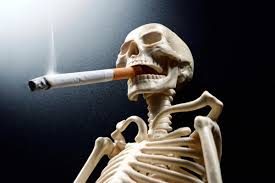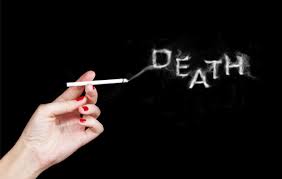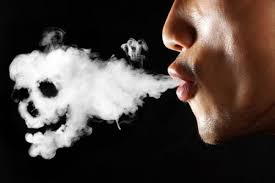A group of old friends congregated to have an adda at Teacher-Student Centre (TSC) of University of Dhaka. Their adda was disrupted due to continuous smoke flying around them. The sign-board of ‘Non-Smoking Area’ could not aware the smokers.
Shahana visited Shishu Park with her children and noticed that many young people smoking there openly. Her children were not feeling well because of the bad odour of smoke, so she left the place.
Whenever it comes to visit a public place or to use a public transport, these scenarios are very familiar in our daily life. Smoking is one of those harmful habits that lead us to the path of death both actively and passively.
The use of tobacco is booming amongst the young people in Bangladesh. It has become one of the largest tobacco consuming countries in the world, with 43 per cent of adults consuming cigarettes, or other tobacco products. According to Global Youth Tobacco Survey (GYTS) 2013, 2.9 per cent of young people aged between 13 and 15 are currently cigarette smokers, and there are more boys than girls.
In Bangladesh, smoking-attributable deaths are about 30 per cent of all deaths from heart diseases, 38 per cent of cancer deaths, 35 per cent of lung TB deaths, and over 24 per cent of deaths from other respiratory diseases. ‘Smoking Kills’– we heard this phrase thousand times but does it stand only for active smokers?
Passive or second-hand smoking is defined when a person involuntarily inhales the smoke of the cigarettes. Everyone is victim of second-hand smoke in public places, where smoking is not allowed. Second-hand smokes harm people more than just irritation. It contains more than 4000 chemicals, inhaled by a smoker, and minimum 50 of them is considered as a catalyst of cancer.

There is no safe level of exposure to tobacco smoke. Within 30 minutes exposure to tobacco, smoke changes the way in which blood clots and increases the risk of heart disease, cancer, and respiratory diseases. It can also lead to sudden infant death syndrome and asthma attacks for children. Many studies showed that miscarriage and still birth rate is one of the results of exposing to second-hand smoking.
The Smoking and Using of Tobacco Products (Control) Act, 2005 (Act No 11 of 2005) is the major law, leading tobacco control in Bangladesh. The Act bans smoking in public places making it a punishable offence, according to section 4 of the said act.

In order to save ourselves from the vulnerability of second-hand smoke, we need to be more responsive to this law. Whenever people see any person violating the law by smoking in a public place, they should raise their voice by hand over the person to the concerned authority for punishment.
Every public place authority must display the warning notice, request smokers not to smoke, drive out them if needed, stop providing services, and finally can call in law enforcing agencies.
Seemanta Ghosh, a student of Dhaka University, gave his opinion regarding this, “Law should be strictly enforced and besides, awareness programmes like campaigns, seminars, road shows, etc should be increased regarding the life threatening affects of passive smoke. Every government offices, educational institutions, and public place authorities should take these initiatives to ensure the safety of non-smokers.”
Everyone has the right to lead a healthy life. It is high time we raised voice against this alarming condition to make sure that no one, in future, will be forced to be a passive smoker in our country. Only our small steps against this act can ensure that our future generation and we breathe in the fresh air.
The writer is studying at Department of Tourism and Hospitality Management, University of Dhaka
Collected by RG












